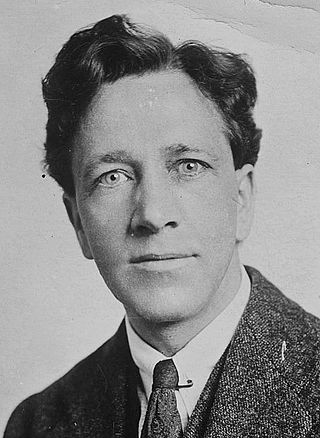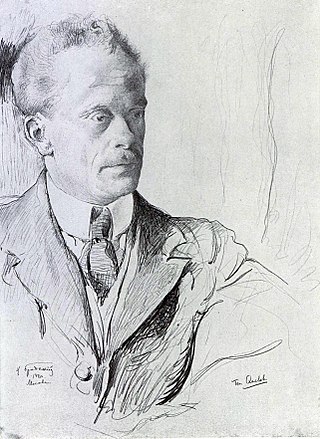Related Research Articles

The Independent Labour Party (ILP) was a British political party of the left, established in 1893 at a conference in Bradford, after local and national dissatisfaction with the Liberals' apparent reluctance to endorse working-class candidates, representing the interests of the majority. A sitting independent MP and prominent union organiser, Keir Hardie, became its first chairman.

The Workers' Socialist Federation was a socialist political party in the United Kingdom, led by Sylvia Pankhurst. Under many different names, it gradually broadened its politics from a focus on women's suffrage to eventually become a left communist grouping.

The Communist Party (British Section of the Third International) was a Left Communist organisation established at an emergency conference held on 19–20 June 1920 at the International Socialist Club in London. It comprised about 600 people.

Arthur MacManus was a Scottish trade unionist and communist politician.
John Thomas Murphy was a British trade union organiser and Communist functionary. Murphy is best remembered as a leader of the communist labour movement in the United Kingdom from the middle 1920s until his resignation from the Communist Party of Great Britain in 1932.

The Communist League was a small far-left organisation in the United Kingdom which existed during the year of 1919. Its stated goal was to establish a network of workers' councils that would "resist all legislation and industrial action directed against the working class, and ultimately assuming all power, establish a working class dictatorship".
The South Wales Socialist Society was a federation of communist groups in Wales, with many of its members being coal miners. It was a founder constituent of the Communist Party of Great Britain.
The Socialist League was an organisation inside the British Labour Party, which sought to push it to the left. It was formed in 1932, through a merger between the National ILP Affiliation Committee (NILP) and the Society for Socialist Inquiry and Propaganda (SSIP), and ceased to exist in 1937.

William Paul (1884–1958) was a British socialist politician.

Thomas Quelch (1886–1954) was a British journalist and the son of veteran Marxist Harry Quelch. a member of the British Socialist Party in the early part of the 20th century, becoming a communist activist in Great Britain in the 1920s.

The Socialist Labour Party was a socialist political party in the United Kingdom. It was established in 1903 as a splinter from the Social Democratic Federation (SDF) by James Connolly, Neil Maclean and SDF members impressed with the politics of the American socialist Daniel De Leon, a Marxist theoretician and leading figure of the Socialist Labor Party of America. After decades of existence as a tiny organisation, the group was finally disbanded in 1980.
The Communist Labour Party was a communist party in Scotland. It was formed in September 1920 by the Scottish Workers' Committee and the Scottish section of the Communist Party, some members of the Socialist Labour Party (SLP) and various local communist groups. In the same month, the Communist Party of South Wales and the West of England was founded, with a very similar programme.

The British Socialist Party (BSP) was a Marxist political organisation established in Great Britain in 1911. Following a protracted period of factional struggle, in 1916 the party's anti-war forces gained decisive control of the party and saw the defection of its pro-war right wing. After the victory of the Bolshevik Revolution in Russia at the end of 1917 and the termination of the First World War the following year, the BSP emerged as an explicitly revolutionary socialist organisation. It negotiated with other radical groups in an effort to establish a unified communist organisation, an effort which culminated in August 1920 with the establishment of the Communist Party of Great Britain. The youth organisation the Young Socialist League was affiliated with the party.
The Socialist Alliance was a left-wing electoral alliance in England between 1999 and 2005.
Jack Villiers Leckie was a Scottish communist activist.
David Ramsay (1883–1948) was a British socialist activist.
Edgar Thoreau Whitehead (1890–1956) was a British political activist, who served on the executive of the Communist Party of Great Britain but later became a fascist.
William Thomas Edward Brain was a British socialist activist.
The Executive Committee of the Communist Party of Great Britain was the governing body of the Communist Party of Great Britain between 1920 and 1991. It governed the party between congresses, at which successive ECs were appointed/elected. The EC played an important leadership role, according to the principles of democratic centralism to which the CPGB adhered.
Joseph Madin was a socialist and trade unionist active in Sheffield who played a major role in founding the Sheffield Labour College. He also played a role as President of Sheffield Trades and Labour Council.
References
- The British Communist Left 1914–45, Mark Hayes (International Communist Current)